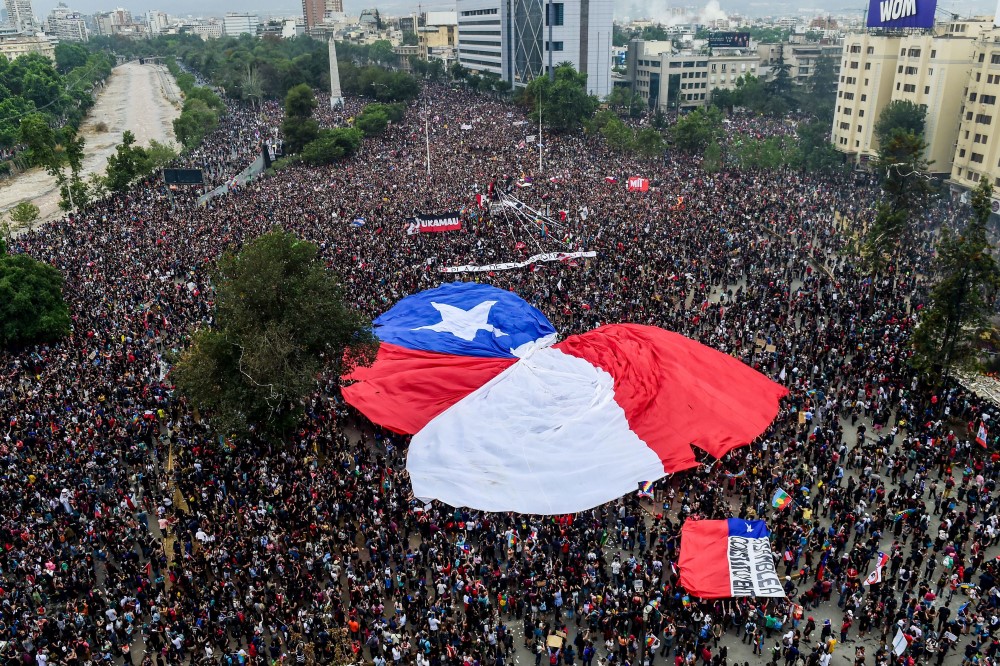Chile’s Servicio Electoral (the Electoral Service known as Servel), nominally independent from the government, has released a list of political parties that will have to dissolve for their failure in the recent national elections to obtain 5 percent of the votes in eight regions of the country, or not winning at least four seats in the country’s congress. This is a requirement imposed by the Constitutional Organic Law of Political Parties (Law 18.603, Article 57).
Without a doubt, this shows how the current electoral system in Chile works in favor of the traditional parties that have run Chile since the end of the Pinochet dictatorship 30 years ago, making institutionally invisible the position of thousands of workers who already feel unrepresented by the traditional parties. This step goes beyond the financial burden smaller parties face when they must compete with the traditional parties.
Among the parties that must dissolve are some that did win parliamentary seats, but that do not meet the specific requirements of the law. Similarly, parties with representatives on councils or in other positions will also be forced to dissolve.
The effect is to exclude from the electoral arena any representation of political views that differ from those of the traditional parties, creating a sort of monopoly of parties that have not only distributed political power among themselves, but have also done the same with the country’s wealth.
Dauno Tótoro, a leader of the Partido de Trabajadores Revolucionarios (PRT, Revolutionary Workers’ Party, Left Voice’s sister group in Chile), who was a candidate for deputy in last November’s elections, denounced the anti-democratic nature of the current electoral system, emphasizing the specific measures the law requires. He noted that dissolving parties prevents the growth of a Left that can question the current government and the next one, and also limits the free expression of organizations that had achieved legal status and now are deprived of their legality.
The law, said Tótoro, maintains the framework established in the aftermath of the dictatorship, in which only two “conglomerates” can employ their legal powers as a party: the former Concertación and the Frente Amplio on the one hand, and the right-wing Chile Vamos on the other.1Translator’s note: The Cóncertacion coalition held the presidency from the time military rule ended until 2010. Frente Amplio (Broad Front) is a coalition that groups some left-wing parties and the Liberals; current Chilean president Gabriel Boric was one of its founders. Chile Vamos is the party of the Sebastián Piñera, who preceded Boric as president.
This imposition of the law reveals the Left mirage that has been created by the Frente Amplio, with Boric at the head as Chile’s new president along with the old Concertación. It has taken only a few words to demonstrate that nothing has really changed with the government.
First published in Spanish on February 12 in La Izquierda Diario Chile.
Translation by Scott Cooper
Notes
| ↑1 | Translator’s note: The Cóncertacion coalition held the presidency from the time military rule ended until 2010. Frente Amplio (Broad Front) is a coalition that groups some left-wing parties and the Liberals; current Chilean president Gabriel Boric was one of its founders. Chile Vamos is the party of the Sebastián Piñera, who preceded Boric as president. |
|---|











